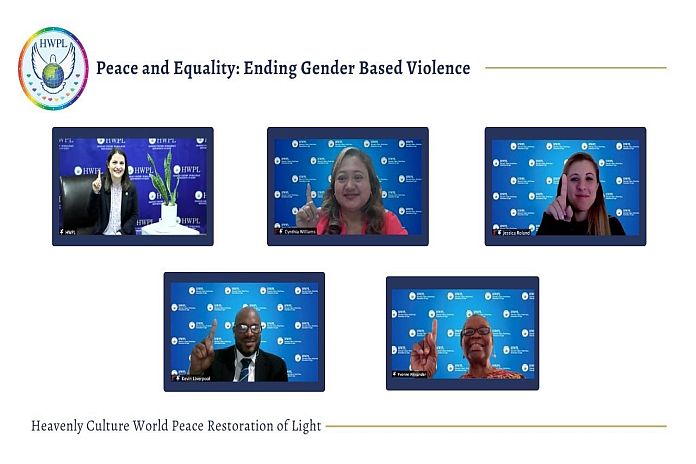By Regan Durkin
WASHINGTON, USA – In 2019, the United States Department of State Bureau of Population, Refugees, and Migration funding 12 organizations that produce services, addressing preventative and innovative solutions that take steps toward ending the pervasive societal pandemic that far-outlasts the COVID-19 pandemic – Gender-Based Violence (GBV).
These organizations include Cooperative for Assistance and Relief Everywhere, Inc.,: Voices and Partnerships Against Violence and The Global Women’s Institute at the George Washington University: Empowered Aid and Transforming gender and power dynamics in the distribution of humanitarian aid. Nearly $49 million were allocated to these projects. However, the problem continues to rise domestically, as well as most countries internationally.
Globally, one out of three women experience acts of GBV in their lifetime and less than 40 percent of cases are actually reported. These are statistics that have existed well before the world shut down due to the COVID-19 virus.
According to the World Health Organization (WHO) most of the violence that is reported within the context of a relationship with an intimate partner. So what happens when women are trapped inside with the perpetrator of the violence they face due to a pandemic?
While many of us were scrambling to stock up on toilet paper, many women all over the world were dreading the thought of being quarantined with their abuser – whether at home or not, they would be risking their mental health and life one way or another.
When looking at Gender-Based Violence in the context of all the factors that produce, or hinder for that matter, a peaceful society, the majority of countries regional economic cost of violence comes from military or internal and private security according to the 2019 Global Peace Index. However, for Central America and the Caribbean, violent crime, composed of violent assault and sexual assault, makes up 40 percent of their cost of violence. This is on average 15-20 percent higher than most other regions.
According to the United Nations Office on Drugs and Crime (UNODC) and the World Bank report, assault rates are significantly above average in the Caribbean. Exceptionally low prosecution rates for sexual and gender-based violence in the region reinforce cultures of impunity in addressing gender-based violence.
As Eastern Caribbean governments work to build back better in the wake of COVID-19, the United Nations and the European Union continue to scale up efforts to foster gender equality and respond to family violence through the launch of a USD$12.7 million Spotlight Regional Caribbean Programme. Of course, this is an effort that can only be achieved in partnership with local, regional, and international governmental and civil society organizations synergizing efforts.
One organization that deals with both the legislative and educational components of peace that has been dedicated to working with the Caribbean region for the past four years is Heavenly Culture, World Peace, and Restoration of Light (HWPL).
HWPL’s initiatives have mainly included the promotion of Peace legislation that promotes spreading a culture of peace and launching Peace Education programs in school systems. Recently, the organization took steps to advance the UN Spotlight Initiative since this is an issue that must be front-and-centre when advocating for peace legislation and education that will effectively shift the culture to one of peace.
During the HWPL Panel “Peace and Equality: Ending Gender-Based Violence”, actress Amanda DuPont called attention to many concerns she has including the lack of penalties for perpetrators, the scarcity of resources to help in the healing process for victims, and the vexing reality that the access to education on how to report and recover from GBV is inexcusably limited.
Cynthia Williams, executive director of the National Women’s Commission of Belize continued the conversation by addressing the culture that also allowed GBV to remain a norm: “Culture is often used as a way of justifying inequality, gender inequality, and violence, and is often used as a tool to keep the status quo.
This is the discussion we need to have, especially helping people to understand that while we are highlighting some of these negative behaviors within culture, it’s not that we are saying that culture is bad or that we’re trying to take away all these cultural nuances that make these different ethnic groups, these different populations unique, but it’s rather addressing the negative influences that are used within the culture.”
GBV is not going to end from a couple of programs that are funded and suggested guidelines for countries presented. There must be specific policy implemented and a complete shift in culture from one of violence to one of peace. This can only happen if education addresses not simply the curriculum that is being taught, but the culture that is being perpetuated. Additionally, this can only happen when policy-makers enact policy that protects and empowers survivors of GBV in a practical way.
From the HWPL panel mentioned above, eight policy recommendations have been made, based on the gaps identified specifically in the Caribbean region to take steps to ensure this issue is addressed just as intently as the pandemic itself.






